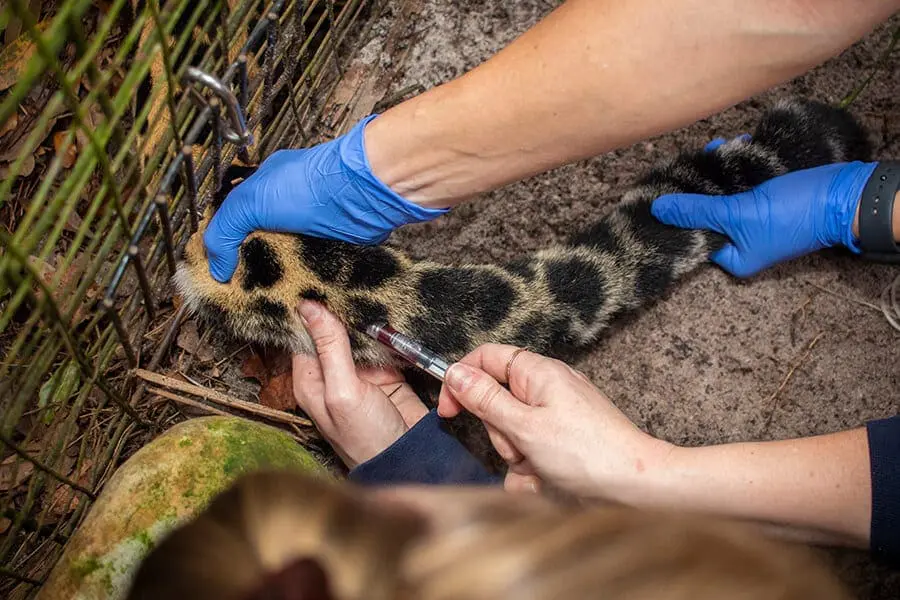

Veterinary technician Kristi collects a blood sample from Mulac’s tail.
Mulac is getting up there. At 18 years of age, our male jaguar has surpassed the median lifespan for his species in human care, and far exceeded the 12–15-year life expectancy of wild jaguars.
Though we are delighted that Mulac is still with us, his advanced age makes him more susceptible to illness—just as it does in humans and domestic animals. Fortunately, we have a talented animal care team equipped to face the health challenges associated with aging.
One of the foundations of modern animal husbandry is training. In addition to providing mental and physical stimulation, training enables animals to participate in their own health care; Mulac, for example, has been trained to open his mouth so we can examine his teeth and gums, press his hip against a mesh wall so we can give him injections, and present his tail for blood draws and blood-pressure readings.
These behaviors came in handy last summer when a test of a voluntarily collected blood sample revealed abnormal kidney values. Mulac was anesthetized for more diagnostic tests, such as radiographs and ultrasounds. Based on these results, Mulac was diagnosed with chronic kidney disease.
Although this ailment is not curable, its progression can be slowed with medication, diet and fluids—and that’s exactly what we’re doing for Mulac. Through observation of his behavior and continued blood draws and blood-pressure readings, we can monitor Mulac’s quality of life and adjust his treatment plan as needed.
Keep an eye on our social media channels for updates on his condition. In the meantime, be sure to thank our Rainforest Revealed keepers for their dedication to Mulac during your next Zoo visit.
